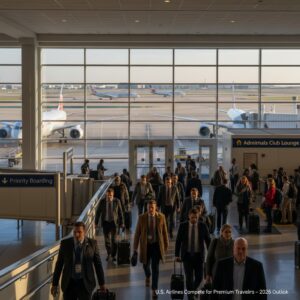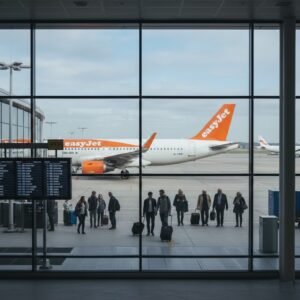Recent surveys by IPK reveal an encouraging trend: China’s enthusiasm for travel has surged, surpassing levels seen in the past two years. The increasing desire for international travel over the next 12 months is laying a solid foundation for a robust recovery in 2024, as highlighted at the recently concluded ITB China event in Shanghai, where 10,000 attendees from the global travel industry convened following the pandemic-induced hiatus.
However, when compared to 2019, China’s outbound travel still lags significantly behind global levels, with no clear recovery on the horizon. In 2019, China ranked as the world’s fourth-largest source market with approximately 70 million outbound trips. In contrast, 2022 saw China overtaken by several markets with more robust recovery rates, owing to sustained and stringent travel restrictions.
The latest IPK survey findings depict a renewed passion for travel among the Chinese populace. Roughly 50% of respondents plan to travel abroad over the next 12 months, with an aim to do so more frequently than in the past. Another 44% intend to maintain their previous travel frequency, while only a small percentage plans to reduce outbound trips or refrain from traveling altogether. This shift signifies a notable trend toward increased outbound travel and reflects a growing desire to explore international destinations.
Regarding travel destinations over the next year, Chinese travelers exhibit a preference for Europe, followed by trips within Asia. Conversely, travel to America is expected to be less common due to limited flight options and geopolitical factors.
For 6% of respondents, domestic travel within China remains the only feasible choice. This preference for European destinations marks a positive shift, as neighboring countries dominated the list at the beginning of the year. This shift is driven by a yearning for distant locations and increased accessibility to Europe after a prolonged period of restricted access.
The survey also reveals a strong demand for cultural travel, with over 80% of Chinese respondents planning holidays abroad in the next 12 months. Of these, 60% plan round trips abroad, while 44% intend to embark on city breaks. This, coupled with the growing interest in European destinations, bodes well for a comprehensive recovery in Europe’s cultural tourism sector. However, an increasing desire for sun and beach holidays within the next year should not be overlooked.
Business travel remains a significant market, with around 30% of Chinese respondents planning overseas business trips in the coming year. This figure remains stable and well above the global average. Notably, there is a clear trend toward Meetings, Incentives, Conferences, and Exhibitions (MICE) travel within the business segment. VFR (Visiting Friends and Relatives) travel and other private trips are not expected to substantially impact China’s outbound travel market in the next 12 months.
When considering the broader impact of pandemic-related restrictions and the decline in travel over the past three years, Chinese travelers indicate they plan to economize on travel expenses. They intend to achieve this by traveling during off-peak periods and shortening their stays to offset increased airfares resulting from reduced flight availability.
Additionally, 25% of respondents express a desire to save on accommodation expenses. Despite these intentions, over 80% plan to stay in hotels during foreign trips in the next year. Other lodging options, such as holiday homes and apartments, are also experiencing increased demand. Overall, Chinese travelers’ spending remains considerably high and surpasses the global average.
In conclusion, China’s rekindled passion for travel, along with the gradual lifting of travel restrictions and the resumption of visa issuance for key destinations, lays the groundwork for a gradual recovery in the outbound travel market. According to IPK surveys, this positive trend is expected to continue over the next 12 months, potentially returning the market to 2019 levels in the medium term.
Nonetheless, challenges remain, including geopolitical factors impacting visa issuance and slow growth in flight availability, compounded by high prices due to the closure of Russian airspace, which may temper China’s travel enthusiasm to some extent.


















More Stories
Toronto Tourism Smashes Records: 28.2M Visitors Power $13.5B Economy
US Airlines Battle for 2026 Skies: Premium Profits Soar
Albania Tourism Booms 2025 12.47M Visitors Despite Challenges!